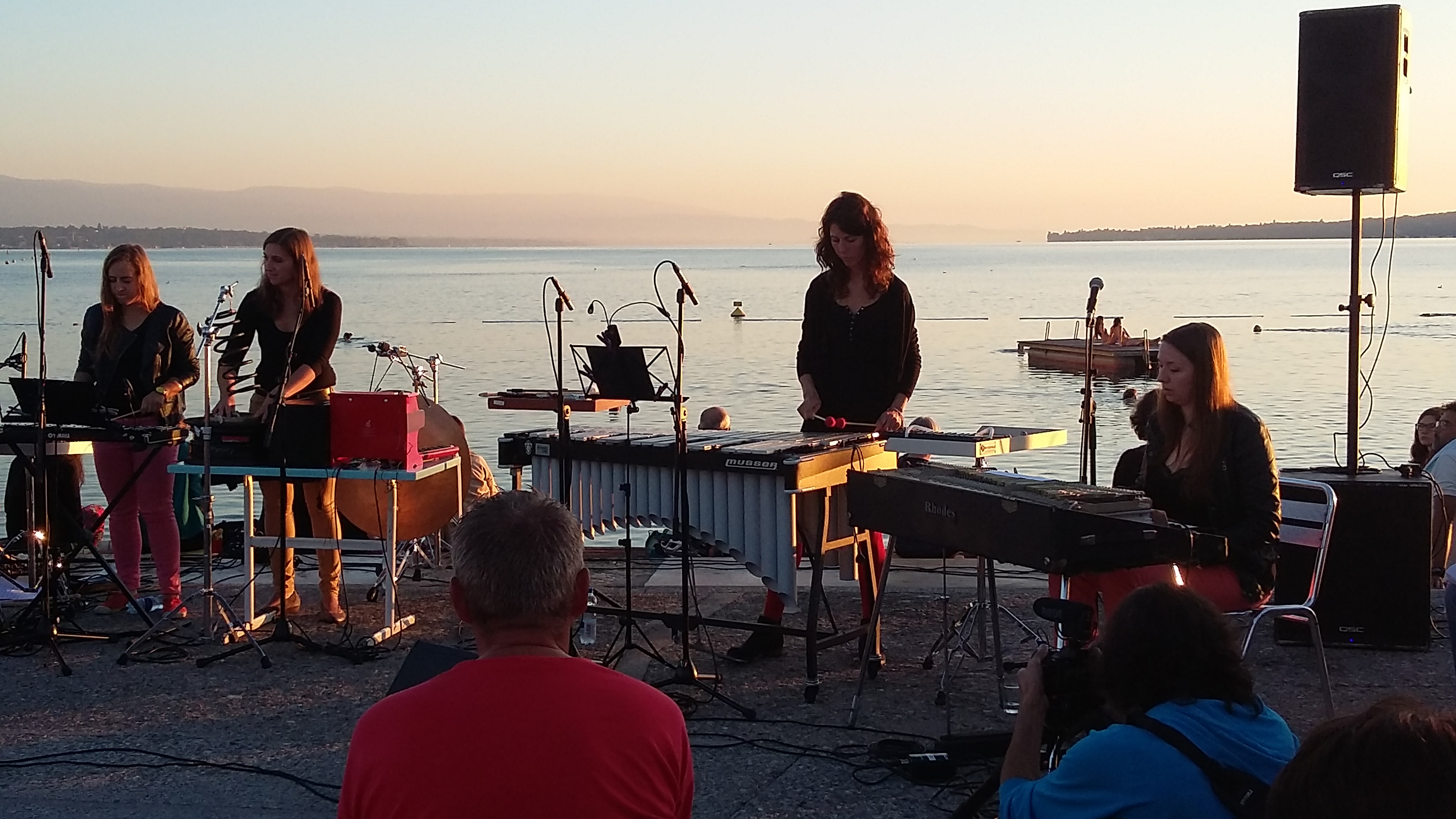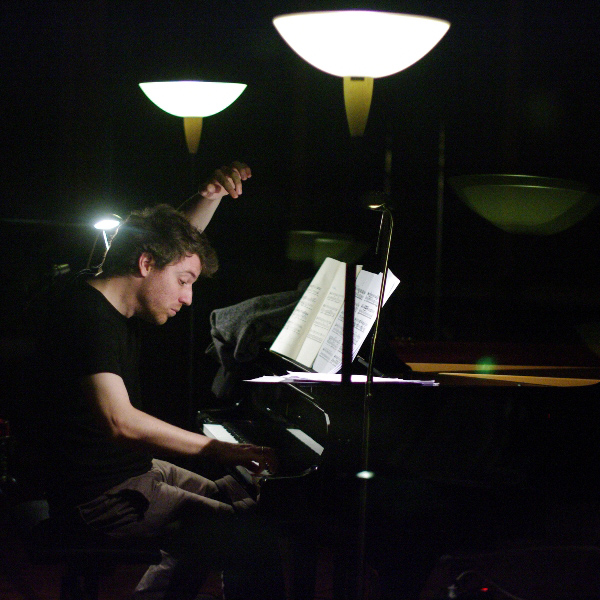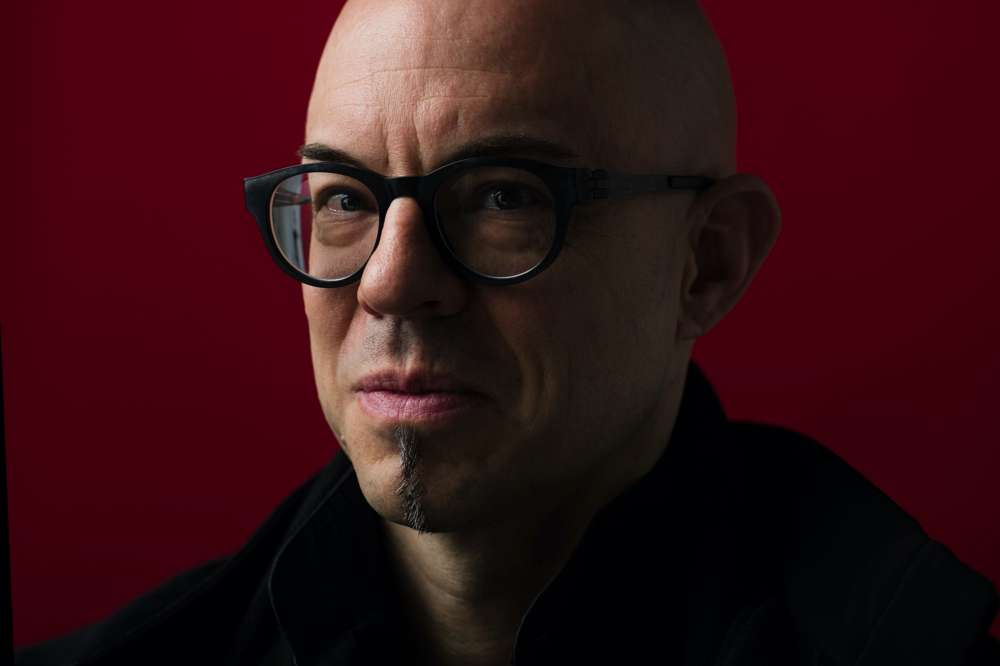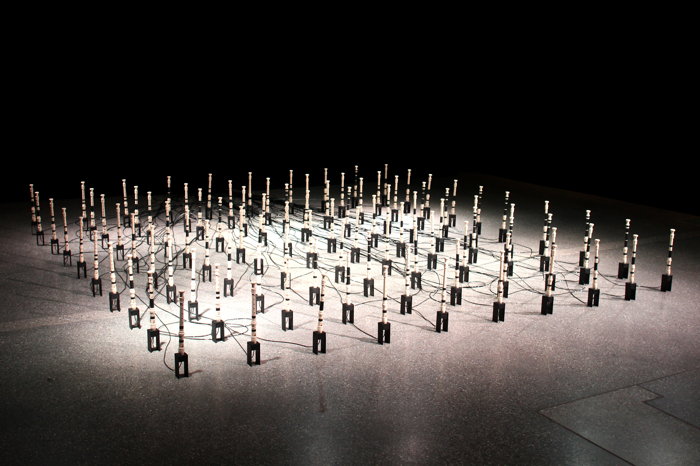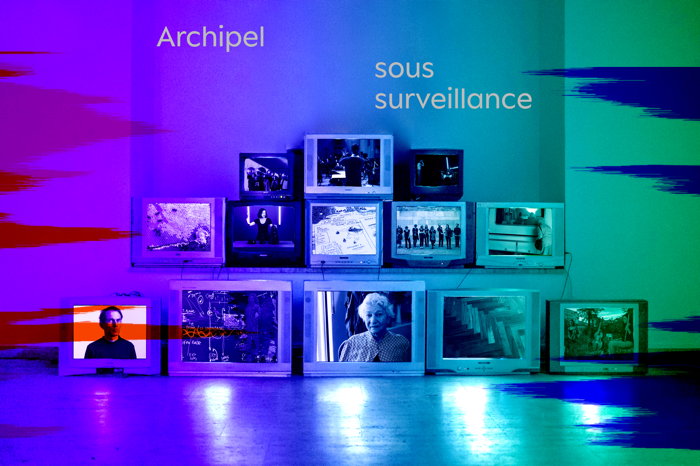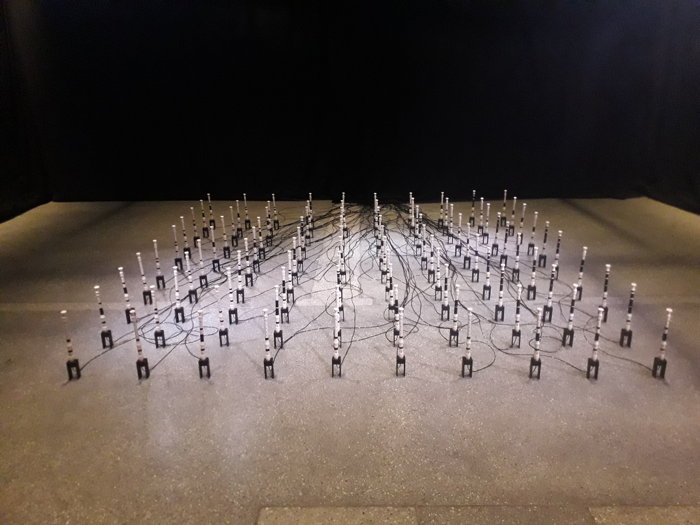Der Basler Komponist Roland Moser erhielt einen der Schweizer Musikpreise des Bundesamts für Kultur. Sein ehemaliger Kompositionsstudent Burkhard Kinzler, mittlerweile selbst arrivierter Komponist und Theoriedozent in Zürich, gibt Einblick in Mosers in Denken und Schaffen.
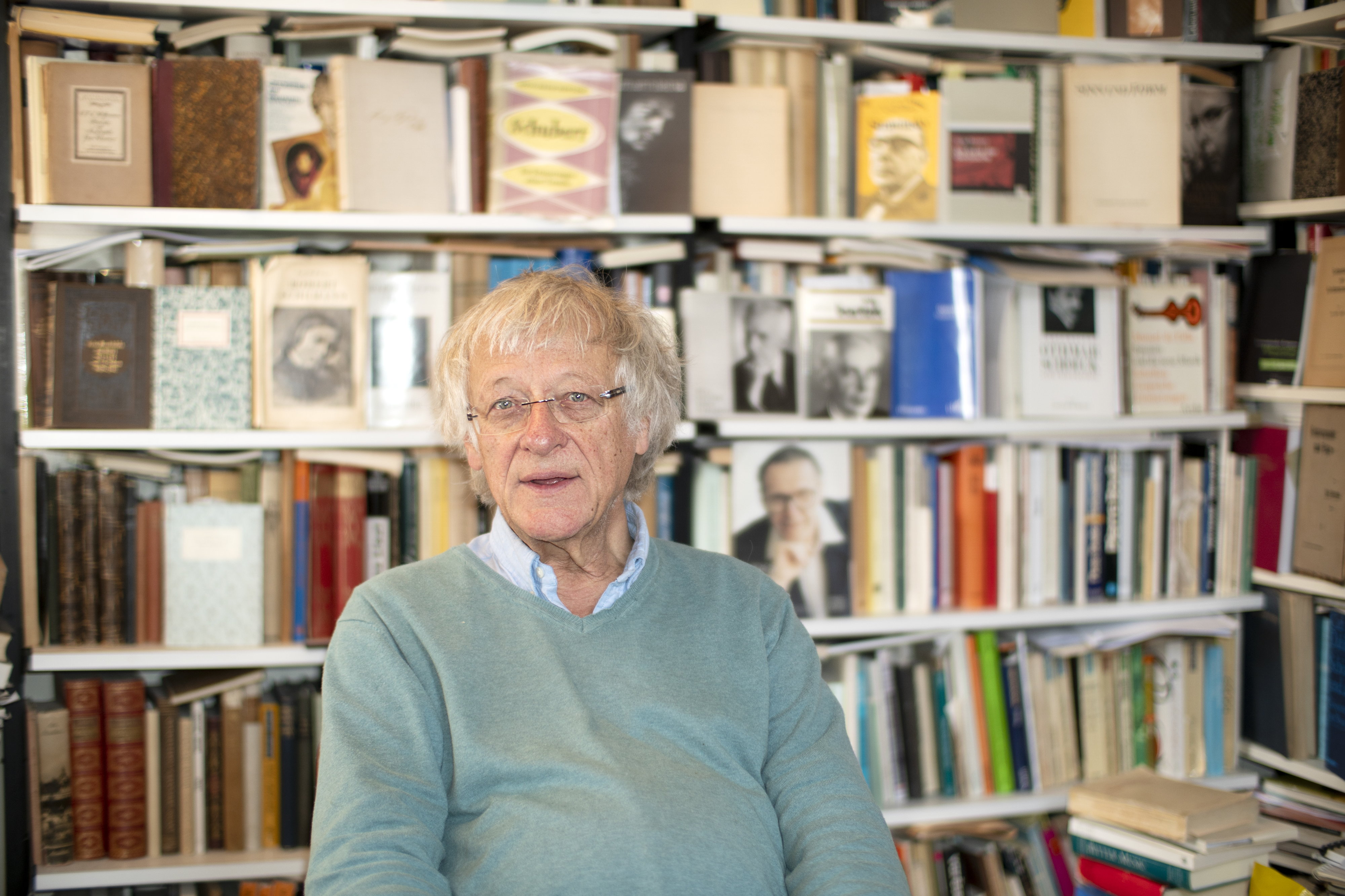
Burkhard Kinzler
Als ich – ein junger, kirchenmusikalisch geprägter angehender Komponist – 1992 zum ersten Mal von Heidelberg nach Basel zu meinem Unterricht bei Roland Moser fuhr, konnte ich noch nicht ahnen, wie prägend, ja entscheidend für mein Leben diese Stunden für mich werden würden. Ich war gespannt, aber auch skeptisch: ich kannte meinen zukünftigen Lehrer bisher überhaupt nicht, hatte eigentlich zu Kelterborn gewollt, von dem ich ein paar Stücke gesungen hatte, bei diesem war aber kein Studienplatz frei. «Kannst es ja mal versuchen bei Moser», dachte ich mir, «und wenn’s nicht funkt, hörst du halt wieder auf».
Nach der ersten Lektion war dieser Gedanke wie weggewischt – es hatte gefunkt. Roland Moser hat mir die Augen geöffnet, sein Blick auf alte wie auf neue Musik war eine Offenbarung für mich. Dieser Mann kannte ALLES. Und ein derart eigenständiges, so kompromissloses wie konkret an der Partitur orientiertes musikalisches Denken war mir vorher noch nicht begegnet.
Seine Gabe, meine kompositorischen Versuche zu lesen, sich in sie hineinzudenken und dann Fragen zu stellen, habe ich je länger je mehr bewundert. Sie hat mich um Quantensprünge vorwärts gebracht. Seine Fragen entlarvten mehr als einmal das nicht zu Ende Gedachte auf liebevoll-diskrete Weise.
Das muss auch anderen so gegangen sein, und so ist es kein Wunder, dass der Löwenanteil meiner Theoriedozierenden-Kollegen nur schon an der ZHdK* aus Rolands Schule kommt.
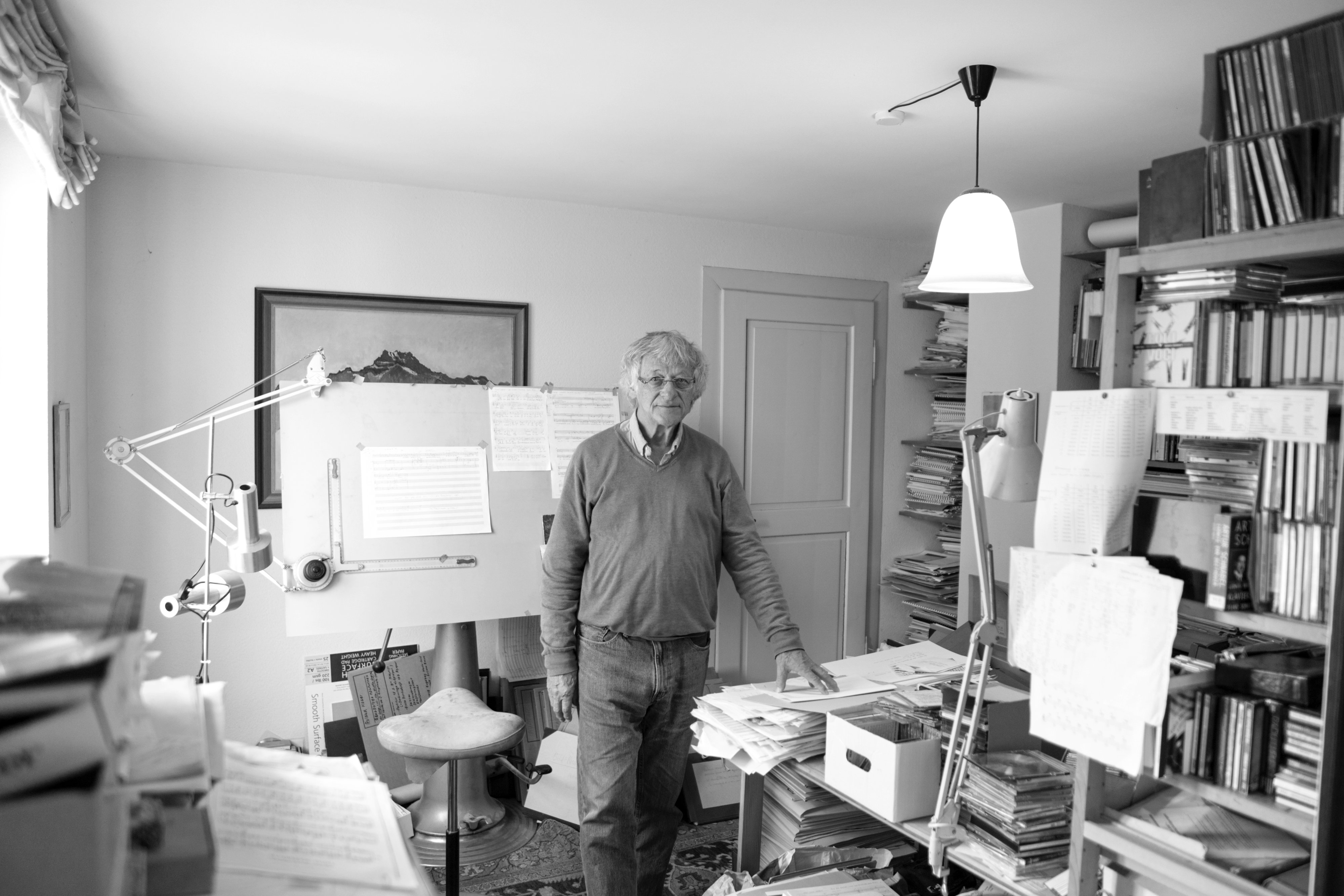
Keine Note Musik hatte ich von Roland Moser gekannt, also begann ich bald einmal, Stücke von ihm aufzutreiben (das war damals deutlich schwieriger als heute), sie zu studieren und auch aufzuführen, zunächst mit meinem kleinen Ensemble für neue Musik und im Rahmen meiner Professur in Mannheim. Bspw. die so präzise formulierten wie hintergründig humorigen Stücke seines «Kabinetts mit Vierteltönen» für 2 Klaviere haben mich wie auch meine damaligen Studierenden bezaubert.
Roland hat mir später einmal im Spass vorgehalten, dass ich fast ausschliesslich seine «Gelegenheitswerke» zur Aufführung bringen würde. Um dann gleichzeitig anzudeuten, dass diese Stücke, scheinbar nur Randprodukte, auf verwickelte Weise eine durchaus wesentliche Rolle in seinem – inzwischen eindrücklich umfassenden – Oeuvre spielen.
Ein gutes Beispiel hierfür sind seine «Quatre cadres harmoniques» für Flöte, Klarinette, Violine, Cello und Klavier, deren erster Satz für Altflöte und Bassklarinette solo für mich so etwas wie ein heimliches Zentrum von Roland Mosers Schaffen darstellt.
Nicht umsonst verwendet er dieses sparsame, auf eine Partiturseite passende Zweieinhalbminutenstück auch in anderen Kompositionen, etwa in «Kleine Differenzen über einen Grund» für Bläserquintett (6. Satz). Auch hier erscheint es als Ausgangspunkt und gedankliche Mitte.
Roland Moser, Kleine Differenzen über einen Grund für Bläserquintett, Ensemble Contrechamps 2005, Eigenproduktion SRG
Wie komme ich zu dieser Einschätzung?
Nun, anhand dieser wenigen Töne lassen sich wesentliche Denk- und Klangrichtungen von Roland Mosers Musik aufzeigen: Da wäre zunächst die strenge, ungeschwätzige Sparsamkeit: kein Ton zu viel, keinerlei «Zierrat», jeder Klang präzise gehört und genau an dem Ort, wo es ihn braucht.
Keine “Just-Intonation-Sauce” – kein spektralistisches Spektakel
Dann die Beschäftigung mit der Obertonreihe, die bei Roland Moser nicht einfach zu einer “Just-Intonation-Sauce” oder einem “spektralistischen Spektakel” führt; Mosers Nachdenken über die Konflikte zwischen (natürlicher) Physik und (temperierter) Kultur erzeugt Klänge, in denen dieser Konflikt zum Erlebnis wird. Die Kontrapunktik der beiden Instrumente in diesem Satz ist derart angelegt, dass buchstäblich jeder Zusammenklang in einem Teiltonverhältnis steht; gleichzeitig sind die Interpret*Innen dazu angehalten, ihre Intonation eben nicht anzupassen, sondern in der gleichstufigen Temperatur zu verbleiben. So erscheint die Natur-Klanglichkeit als Chimäre, die wie mit den Händen (bzw. den Ohren) zu greifen scheint und sich doch nur als Fata Morgana herausstellt.
Damit das alles im Ohr der Zuhörenden passieren kann, braucht es die Geduld und die Fähigkeit zur Langsamkeit des Komponisten. Beides hat Roland Moser zur Genüge.
Unbedingt zu erwähnen ist auch die rhythmisch ungebundene, aber gestisch immer eindeutige Art der Dauern-Notation, die Roland Moser bei seinem Freund György Kurtag gelernt hat.
All die genannten Grund-Bedingungen führen zu einem – nur zweistimmigen – Stück von ungeheurer Konzentriertheit und einer unmittelbar aus der Klangkonzeption entstehenden Ausdruckskraft, die ihresgleichen sucht.
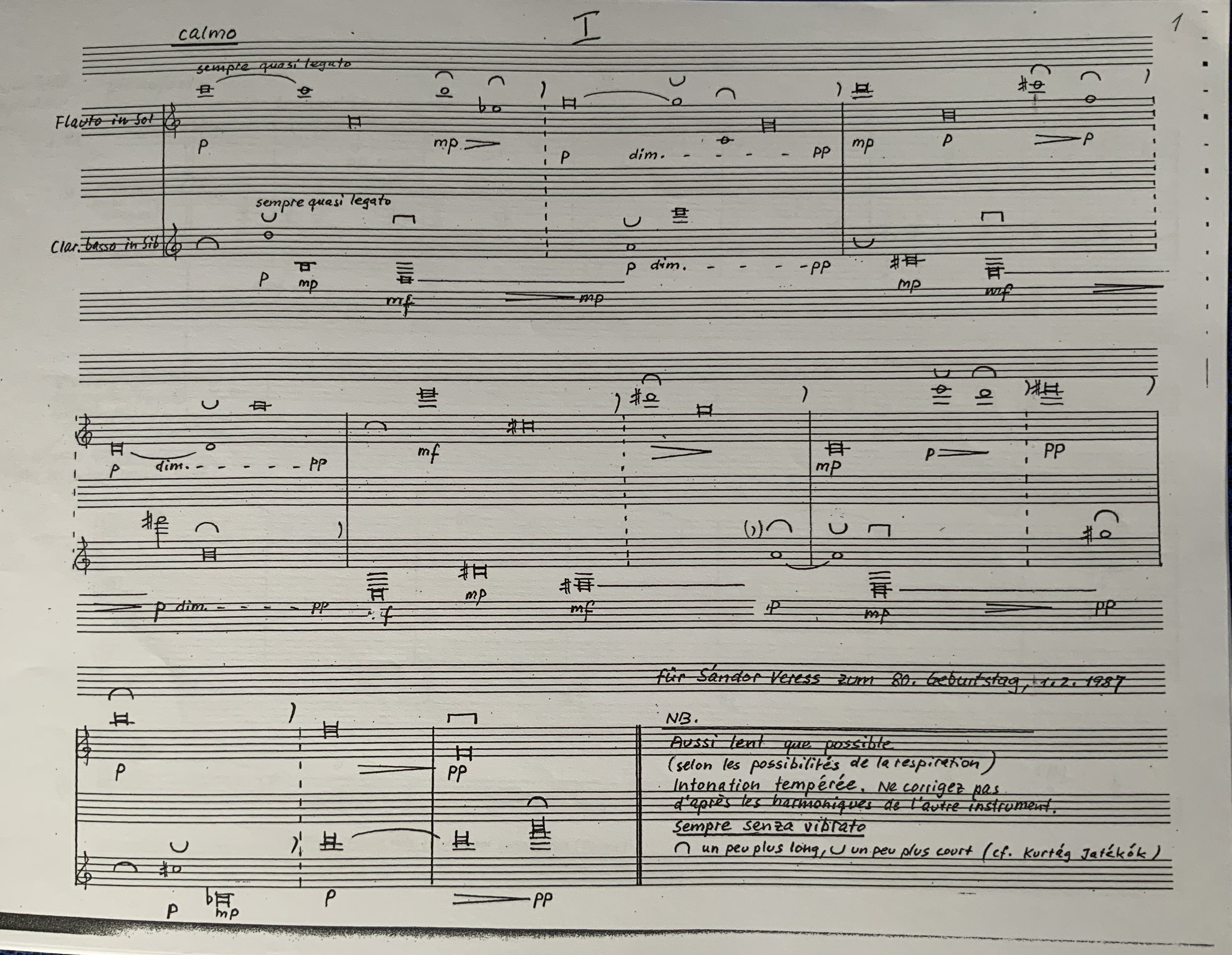
Das “Romantik-Projekt”
Nun wäre es absolut ungerechtfertigt, Roland Mosers weitgespanntes Oeuvre auf dieses «Stücklein», wie er selbst es wohl nennen würde, zu reduzieren. Es gibt grosse, sein gesamtes kompositorisches Leben bestimmende Projekte wie etwa das «Romantik-Projekt». Zu einer Zeit, als die romantische Dichtung gegenüber spät- und post-expressionistischen Ausdrucksweisen bei den meisten seiner Zeitgenossen als vorgestrig galt, beschäftigte Roland Moser sich unbeirrt mit Dichtern wie Heine und vor allem Brentano. Er schaffte es, dieser scheinbar so lieblichen Sprache ihr anarchisches Potenzial abzulauschen und eine eigene, neuartige Klanglichkeit dafür zu finden.
In diesen Zusammenhang gehört auch die permanente Auseinandersetzung mit der Musik Franz Liszts und vor allem Franz Schuberts, zu der Roland Tiefgründiges zu sagen weiss und auf die er in seinem eigenen Werk immer wieder reagiert hat. Etwa in den «Echoräumen» nach Schuberts Trauermusik oder in der Bearbeitung des Andante h-moll für fragmentarisches Orchester.
Roland Moser, Echoraum nach Schuberts Trauermusik (Nonett D79) für Kammerorchester, Kammerorchester Basel, 2018, Eigenproduktion SRG
Hier zeigt sich auch Mosers Verhältnis zum Orchester, das er selbst als «gebrochen» bezeichnet hat – und doch war es ihm möglich, so gewichtige Werke wie «WAL – für schweres Orchester» zu schreiben.
Roland Moser, WAL für schweres Orchester mit 5 Saxophonen (1980/83), Basel Sinfonietta und Xasax Saxophonquartett, Eigenproduktion SRG
Auch seine grosse Oper «Avatar» kreist ums Romantisch-Phantastische, wie auch auf ganz andere Weise sein zweites Bühnenwerk «Rahel und Pauline», welches das Kunststück fertigbringt, einen Briefwechsel (zwischen Rahel Varnhagen und Pauline Wiesel) zur Szene zu bringen, also lebendig zu machen.
So vieles gäbe es noch zu sagen über Roland Mosers Werk und Wirken. Roland Mosers Kosmos hat Berührungs- und Anregungspunkte in der gesamten menschlichen Geschichte – hierin manifestiert sich seine zutiefst humane, menschenfreundliche Haltung. Sein Werk ist Ausdruck einer tiefen, gleichzeitig kritischen wie von Zuneigung geprägten Auseinandersetzung und Kommunikation mit dem Menschen und allem, was unser Menschengeschlecht ausmacht.
Burkhard Kinzler
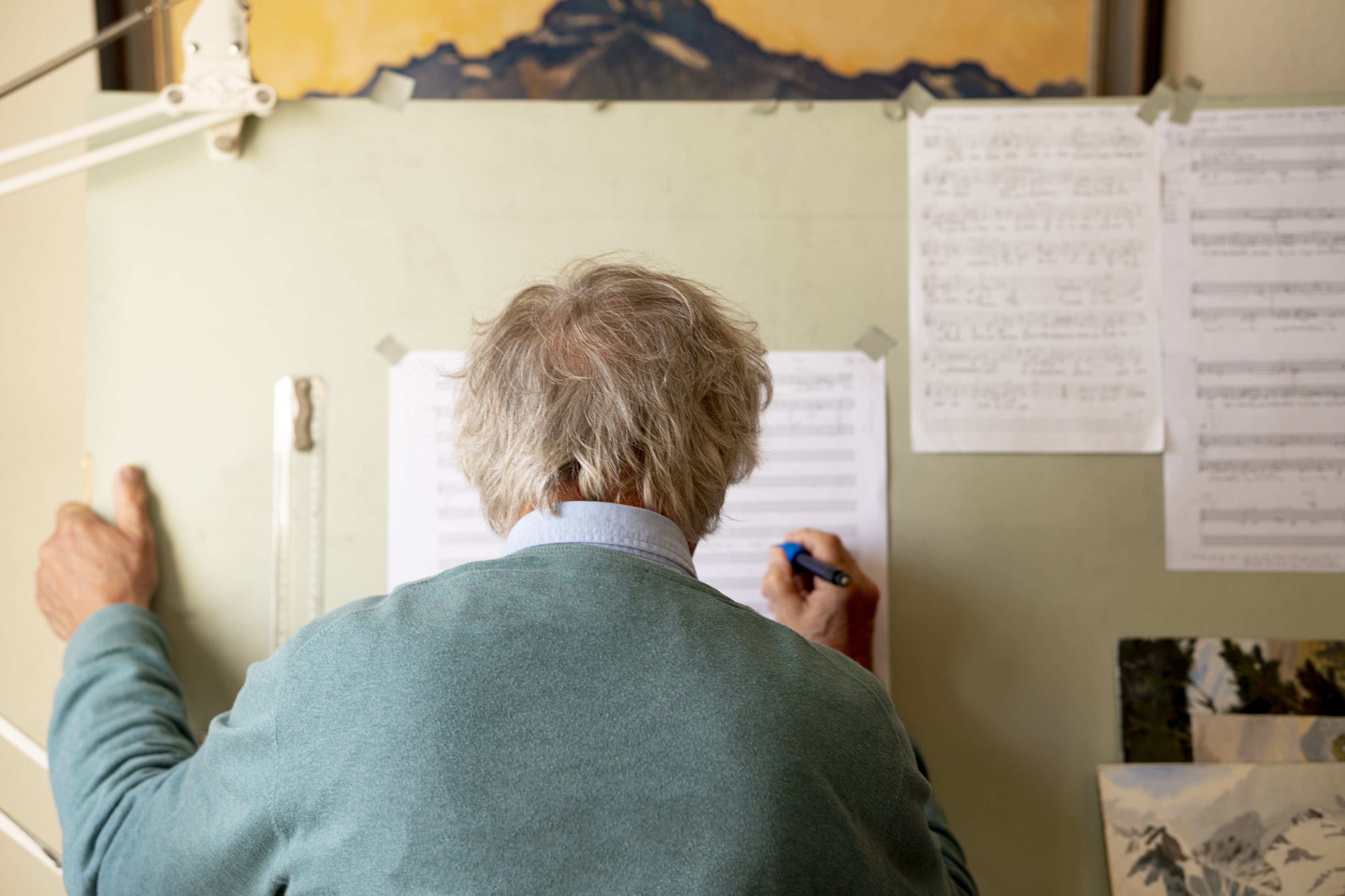
*Theorie-Dozierende ZHdK u.a.: Felix Baumann, Kaspar Ewald, Mathias Steinauer, Felix Profos, Bruno Karrer, Lars Heusser
Das Romantik-Projekt wird dieses Jahr fortgeführt mit einer Uraufführung zu den letzten symphonischen Dichtungen Schuberts, aufgeführt durch das KOB unter der Leitung von Heinz Holliger.
24. Juli 2021, Lübeck, Schleswig-Holstein Musikfestival: Uraufführung dreisätzige Fassung der letzten symphonischen Skizzen von Franz Schubert (D 936A) von Roland Moser.
Kammerorchester Basel, Leitung Heinz Holliger.
Weitere Daten/Orte:
15.8. Stadtcasino Basel
21. August, Festival Les Jardins musicaux, Rondchâtel Villiers bei Biel/Bienne: Uraufführung «Die Europäerin», Musiktheater von Roland Moser, nach dem Mikrogrammm 400 von Robert Walser; mit Leila Pfister, Niklaus Kost, Jürg Kienberger, Conrad Steinmann (BAK-Preisträger 2021), Alessandro d’Amico, Helena Winkelman
.
Weitere Daten/Orte:
18. September: Festival Rümlingen 2021, Musiktheater#3
29./30. Januar 2022: Basel Gare du Nord
Im Sommer 2021 erscheint eine neue CD mit Cello-Soli und Duos mit Klavier, Violine, Oboe d’amore, Blockflöte mit: Katharina Gohl Moser, Anton Kernjak, Helena Winkelman, Matthias Arter und Conrad Steinmann.
Detlev Müller-Siemens, György Kurtág, Felix Baumann, Bruno Karrer, Lars Heusser, Leila Pfister, Katharina Gohl Moser, Jürg Kienberger
Neo Profile
Roland Moser, Burkhard Kinzler, Kammerorchester Basel, Festival Les jardins musicaux, Heinz Holliger, Kaspar, Neue Musik Rümlingen, Mathias Steinauer, Felix Profos, Matthias Arter, Helena Winkelman, Basel Sinfonietta, Anton Kernjak, Xasax Saxophonquartett


